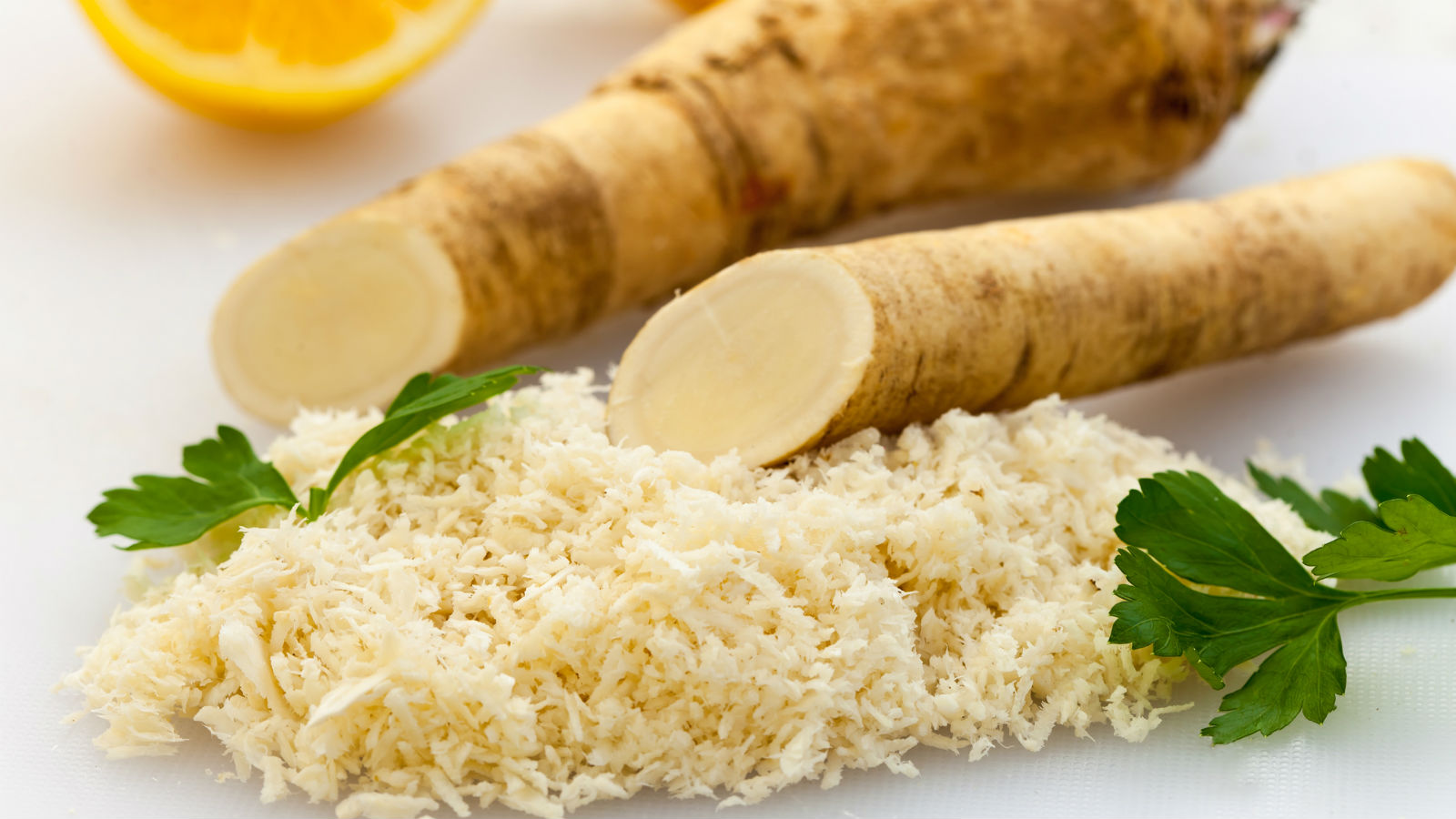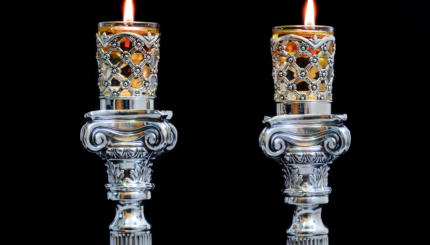Bitterness isn’t just a tradition in the Jewish community–it’s a commandment. Here we answer some frequently asked questions about Passover‘s bitter herbs, also known as maror.
Q: Where does the commandment to eat bitter herbs come from?
A: In Exodus 12:8 the Torah commands us to eat the paschal sacrifice, “with unleavened bread and with bitter herbs.” This same law is repeated in Numbers 9:20. Though we do not have the paschal sacrifice any more the obligation to eat the bitter herbs remains.
Q: What qualifies as a bitter herb?
A: The Hebrew word used is maror, which comes from the root mar, meaning bitter. In the Talmud, the rabbis came up with a list of qualifications for whatever vegetable you use as maror. It should be bitter, have sap, and be grayish in appearance. It also needs to be a vegetable that grows from the earth, not from a tree. (Pesahim 39a) Though we tend to refer to maror in English as an herb, it would be more accurate to say vegetable.
Q: What are some examples of things that could be bitter herbs at my seder this year?
A: The Mishnah (Pesahim 2:6) lists five possibilities that can be used at the seder, but it’s hard to know for certain exactly what plants they are referring to. The one that is most clear is called hazeret in Hebrew, which is commonly understood to mean lettuce. So many halakhic authorities today say the best form of bitter herbs is romaine lettuce, even though it is not initially bitter, but has a bitter aftertaste. The outer older leaves of romaine lettuce can contain a grayish milky sap that is very bitter. If lettuce is not available, any vegetable is suitable, and other common options are celery and horseradish (also known as chrein).

Help us keep Jewish knowledge accessible to millions of people around the world.
Your donation to My Jewish Learning fuels endless journeys of Jewish discovery. With your help, My Jewish Learning can continue to provide nonstop opportunities for learning, connection and growth.
Q: What is the symbolism of maror?
A: Though it isn’t explicit in the Torah, bitter herbs are commonly held to be a symbol of the bitterness the Israelites felt when they were slaves in Egypt. By eating the herbs we feel bitterness ourselves, and can more easily imagine ourselves as slaves. When we dip the maror in the haroset we are associating the bitterness we feel with the hard labor the Israelites experienced at the hands of the Egyptians.
Q: Why would we say a blessing over something that’s bitter and symbolizes hardship and suffering?
A: When we dip maror in haroset we recognize that bitter and sweet often come together in life. To be a Jew is to see both the bitter and the sweet in the world, and to bless God for both. Maror also reminds us that misery is not meaningless. The pain that the Israelites suffered as slaves in Egypt was not for naught. It led to their cries for freedom, and ultimately their redemption.
Mishnah
Pronounced: MISH-nuh, Origin: Hebrew, code of Jewish law compiled in the first centuries of the Common Era. Together with the Gemara, it makes up the Talmud.

Help us keep Jewish knowledge accessible to millions of people around the world.
Your donation to My Jewish Learning fuels endless journeys of Jewish discovery. With your help, My Jewish Learning can continue to provide nonstop opportunities for learning, connection and growth.
seder
Pronounced: SAY-der, Origin: Hebrew, literally “order”; usually used to describe the ceremonial meal and telling of the Passover story on the first two nights of Passover. (In Israel, Jews have a seder only on the first night of Passover.)

Help us keep Jewish knowledge accessible to millions of people around the world.
Your donation to My Jewish Learning fuels endless journeys of Jewish discovery. With your help, My Jewish Learning can continue to provide nonstop opportunities for learning, connection and growth.
Torah
Pronunced: TORE-uh, Origin: Hebrew, the Five Books of Moses.

Help us keep Jewish knowledge accessible to millions of people around the world.
Your donation to My Jewish Learning fuels endless journeys of Jewish discovery. With your help, My Jewish Learning can continue to provide nonstop opportunities for learning, connection and growth.




